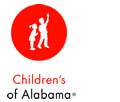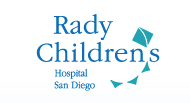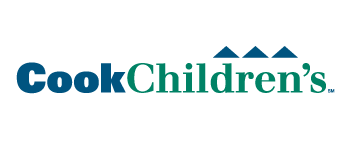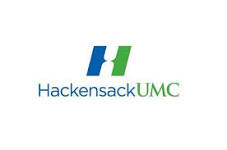Busulfan, Cyclophosphamide, and Melphalan or Busulfan and Fludarabine Phosphate Before Donor Hematopoietic Cell Transplant in Treating Younger Patients With Juvenile Myelomonocytic Leukemia
| Status: | Completed |
|---|---|
| Conditions: | Blood Cancer |
| Therapuetic Areas: | Oncology |
| Healthy: | No |
| Age Range: | Any - 18 |
| Updated: | 12/7/2018 |
| Start Date: | June 24, 2013 |
| End Date: | December 31, 2017 |
A Randomized Phase II Study Comparing Two Different Conditioning Regimens Prior to Allogeneic Hematopoietic Cell Transplantation (HCT) for Children With Juvenile Myelomonocytic Leukemia (JMML)
This randomized phase II trial studies how well giving busulfan, cyclophosphamide, and
melphalan or busulfan and fludarabine phosphate before donor hematopoietic cell transplant
works in treating younger patients with juvenile myelomonocytic leukemia. Giving chemotherapy
before a donor hematopoietic transplant helps stop the growth of cancer cells. It may also
stop the patient's immune system from rejecting the donor's stem cells. When the healthy stem
cells from a donor are infused into the patient, they may help the patient's bone marrow make
stem cells, red blood cells, white blood cells, and platelets. It is not yet known whether
giving busulfan, cyclophosphamide, and melphalan or busulfan and fludarabine phosphate before
a donor stem cell transplant is more effective in treating juvenile myelomonocytic leukemia.
melphalan or busulfan and fludarabine phosphate before donor hematopoietic cell transplant
works in treating younger patients with juvenile myelomonocytic leukemia. Giving chemotherapy
before a donor hematopoietic transplant helps stop the growth of cancer cells. It may also
stop the patient's immune system from rejecting the donor's stem cells. When the healthy stem
cells from a donor are infused into the patient, they may help the patient's bone marrow make
stem cells, red blood cells, white blood cells, and platelets. It is not yet known whether
giving busulfan, cyclophosphamide, and melphalan or busulfan and fludarabine phosphate before
a donor stem cell transplant is more effective in treating juvenile myelomonocytic leukemia.
PRIMARY OBJECTIVES:
I. To compare ? in a randomized fashion ? the day 100 treatment related mortality (TRM)
incidence for two myeloablative conditioning regimens, busulfan-fludarabine (fludarabine
phosphate) (BU-FLU) and busulfan-cyclophosphamide-melphalan (BU-CY-MEL), prior to
hematopoietic cell transplant (HCT) for children with juvenile myelomonocytic leukemia
(JMML), in order to determine the preferred regimen for future trials.
II. To compare ? in a randomized fashion ? the 18-month event-free survival (EFS) following
two different myeloablative conditioning regimens (BU-FLU vs. BU-CY-MEL) prior to HCT for
children with JMML, in order to determine the preferred regimen for future trials.
SECONDARY OBJECTIVES:
I. To determine the 18-month relapse incidence (RI) following two different myeloablative
conditioning regimens (BU-FLU vs. BU-CY-MEL) prior to HCT for children with JMML.
II. To determine the graft failure rates following two different myeloablative conditioning
regimens (BU-FLU vs. BU-CY-MEL) prior to HCT for children with JMML.
TERTIARY OBJECTIVES:
I. To determine the rates of severe toxicities (grade 3/4) at day 100 post-HCT between the
two myeloablative conditioning regimens (BU-FLU vs. BU-CY-MEL).
II. To determine the rates of acute and chronic (at 18 months post-HCT) graft-versus-host
disease (GVHD) following HCT using two different conditioning regimens (BU-FLU vs. BU-CY-MEL)
in children with JMML.
III. To create a JMML-specific pre-HCT index to allow better risk-stratification of future
patients.
IV. To determine the feasibility of assessing post-transplant disease burden by donor
chimerism measurements and allele-specific polymerase chain reaction (PCR) in mononuclear and
sorted cell subsets.
V. To validate gene expression and methylation classifiers predictive of relapse in patients
with JMML.
VI. To comprehensively assess genetic and biochemical alterations amongst patients with JMML
who are treated on this transplant protocol.
OUTLINE: Patients are randomized to 1 of 2 treatment arms.
ARM I:
CONDITIONING REGIMEN: Patients receive busulfan intravenously (IV) over 2-3 hours once daily
(QD), every 12 hours, or every 6 hours on days -8 to -5, cyclophosphamide IV over 60 minutes
QD on days -4 and -3, and melphalan IV over 15-30 minutes on day -1.
TRANSPLANT: Patients undergo allogeneic HCT on day 0.
Patients receive tacrolimus IV or orally (PO) on days -1 to 98 (related donor) or 180
(unrelated donor) and mycophenolate mofetil IV over 2 hours or PO every 8 hours on days 1-30
(related donor) or 45 (unrelated donor).
ARM II:
CONDITIONING REGIMEN: Patients receive busulfan as in Arm I and fludarabine phosphate IV over
30-60 minutes on days -5 to -2.
TRANSPLANT: Patients undergo allogeneic HCT as in Arm I.
Patients receive tacrolimus IV or PO on days -1 to 98 (related donor) or 180 (unrelated
donor) and mycophenolate mofetil IV over 2 hours or PO every 8 hours on days 1-30 (related
donor) or 45 (unrelated donor).
After completion of study treatment, patients are followed up for 5 years.
I. To compare ? in a randomized fashion ? the day 100 treatment related mortality (TRM)
incidence for two myeloablative conditioning regimens, busulfan-fludarabine (fludarabine
phosphate) (BU-FLU) and busulfan-cyclophosphamide-melphalan (BU-CY-MEL), prior to
hematopoietic cell transplant (HCT) for children with juvenile myelomonocytic leukemia
(JMML), in order to determine the preferred regimen for future trials.
II. To compare ? in a randomized fashion ? the 18-month event-free survival (EFS) following
two different myeloablative conditioning regimens (BU-FLU vs. BU-CY-MEL) prior to HCT for
children with JMML, in order to determine the preferred regimen for future trials.
SECONDARY OBJECTIVES:
I. To determine the 18-month relapse incidence (RI) following two different myeloablative
conditioning regimens (BU-FLU vs. BU-CY-MEL) prior to HCT for children with JMML.
II. To determine the graft failure rates following two different myeloablative conditioning
regimens (BU-FLU vs. BU-CY-MEL) prior to HCT for children with JMML.
TERTIARY OBJECTIVES:
I. To determine the rates of severe toxicities (grade 3/4) at day 100 post-HCT between the
two myeloablative conditioning regimens (BU-FLU vs. BU-CY-MEL).
II. To determine the rates of acute and chronic (at 18 months post-HCT) graft-versus-host
disease (GVHD) following HCT using two different conditioning regimens (BU-FLU vs. BU-CY-MEL)
in children with JMML.
III. To create a JMML-specific pre-HCT index to allow better risk-stratification of future
patients.
IV. To determine the feasibility of assessing post-transplant disease burden by donor
chimerism measurements and allele-specific polymerase chain reaction (PCR) in mononuclear and
sorted cell subsets.
V. To validate gene expression and methylation classifiers predictive of relapse in patients
with JMML.
VI. To comprehensively assess genetic and biochemical alterations amongst patients with JMML
who are treated on this transplant protocol.
OUTLINE: Patients are randomized to 1 of 2 treatment arms.
ARM I:
CONDITIONING REGIMEN: Patients receive busulfan intravenously (IV) over 2-3 hours once daily
(QD), every 12 hours, or every 6 hours on days -8 to -5, cyclophosphamide IV over 60 minutes
QD on days -4 and -3, and melphalan IV over 15-30 minutes on day -1.
TRANSPLANT: Patients undergo allogeneic HCT on day 0.
Patients receive tacrolimus IV or orally (PO) on days -1 to 98 (related donor) or 180
(unrelated donor) and mycophenolate mofetil IV over 2 hours or PO every 8 hours on days 1-30
(related donor) or 45 (unrelated donor).
ARM II:
CONDITIONING REGIMEN: Patients receive busulfan as in Arm I and fludarabine phosphate IV over
30-60 minutes on days -5 to -2.
TRANSPLANT: Patients undergo allogeneic HCT as in Arm I.
Patients receive tacrolimus IV or PO on days -1 to 98 (related donor) or 180 (unrelated
donor) and mycophenolate mofetil IV over 2 hours or PO every 8 hours on days 1-30 (related
donor) or 45 (unrelated donor).
After completion of study treatment, patients are followed up for 5 years.
Inclusion Criteria:
- Patients must have a strong clinical suspicion of JMML, based on a modified category 1
of the revised diagnostic criteria; specifically, eligible patients must have all of
the following:
- Splenomegaly
- Absolute monocyte count (AMC) > 1000/uL
- Blasts in peripheral blood (PB)/bone marrow (BM) < 20%
- For the 7-10% of patients without splenomegaly, the diagnostic entry criteria must
include all other features described above and at least 2 of the following criteria:
- Circulating myeloid precursors
- White blood cell (WBC) > 10,000/uL
- Increased fetal hemoglobin (HgbF) for age
- Sargramostim (GM-CSF) hypersensitivity OR, patients must have been previously
diagnosed with JMML
- Patients must be previously untreated with HCT
- All patients and/or their parents or legal guardians must sign a written informed
consent
- All institutional, Food and Drug Administration (FDA), and National Cancer Institute
(NCI) requirements for human studies must be met
Exclusion Criteria:
- Patients with a known germline mutation of PTPN11 (Noonan?s Syndrome) are not eligible
- Patients with a known history of NF1 (Neurofibromatosis Type 1) and either
- A history of a tumor of the central nervous system (astrocytoma or optic glioma),
or
- A malignant peripheral nerve sheath tumor with a complete remission of < 1 year
are not eligible
- Human immunodeficiency virus (HIV) positive patients are not eligible
We found this trial at
45
sites
Click here to add this to my saved trials
Children's Hospital of Alabama Children
Click here to add this to my saved trials
3333 Burnet Avenue # Mlc3008
Cincinnati, Ohio 45229
Cincinnati, Ohio 45229
1-513-636-4200

Cincinnati Children's Hospital Medical Center Patients and families from across the region and around the...
Click here to add this to my saved trials
Rainbow Babies and Children's Hospital UH Rainbow Babies & Children’s Hospital is a 244-bed, full-service...
Click here to add this to my saved trials
Nationwide Children's Hospital At Nationwide Children’s, we are creating the future of pediatric health care....
Click here to add this to my saved trials
Medical City Dallas Hospital If you have concerns for your health, that of a family...
Click here to add this to my saved trials
City of Hope Comprehensive Cancer Center City of Hope is a leading research and treatment...
Click here to add this to my saved trials
University of Mississippi Medical Center The University of Mississippi Medical Center, located in Jackson, is...
Click here to add this to my saved trials
Children's Mercy Hospital Children's Mercy Hospitals and Clinics continues redefining pediatric medicine throughout the Midwest...
Click here to add this to my saved trials
Children's Hospital of Orange County For more than 45 years, CHOC Children’s has been steadfastly...
Click here to add this to my saved trials
Children's Hospital of Philadelphia Since its start in 1855 as the nation's first hospital devoted...
Click here to add this to my saved trials
4401 Penn Avenue
Pittsburgh, Pennsylvania 15224
Pittsburgh, Pennsylvania 15224
412-692-5325

Children's Hospital of Pittsburgh of UPMC UPMC is one of the leading nonprofit health systems...
Click here to add this to my saved trials
3181 Southwest Sam Jackson Park Road
Portland, Oregon 97239
Portland, Oregon 97239
503 494-8311

Oregon Health and Science University In 1887, the inaugural class of the University of Oregon...
Click here to add this to my saved trials
University of Rochester The University of Rochester is one of the country's top-tier research universities....
Click here to add this to my saved trials
7700 Floyd Curl Dr
San Antonio, Texas 78229
San Antonio, Texas 78229
(210) 575-7000

Methodist Children's Hospital of South Texas Methodist Children
Click here to add this to my saved trials
Rady Children's Hospital - San Diego Rady Children's Hospital-San Diego is the region’s pediatric medical...
Click here to add this to my saved trials
New York Medical College The College was founded in 1860 by a group of New...
Click here to add this to my saved trials
Alfred I. duPont Hospital for Children Nemours began more than 70 years ago with the...
Click here to add this to my saved trials
Click here to add this to my saved trials
401 North Broadway
Baltimore, Maryland 21287
Baltimore, Maryland 21287
410-955-5000

Johns Hopkins University-Sidney Kimmel Cancer Center The name Johns Hopkins has become synonymous with excellence...
Click here to add this to my saved trials
Dana-Farber Cancer Institute Since it’s founding in 1947, Dana-Farber has been committed to providing adults...
Click here to add this to my saved trials
Click here to add this to my saved trials
171 Ashley Avenue
Charleston, South Carolina 29425
Charleston, South Carolina 29425
843-792-1414

Medical University of South Carolina The Medical University of South Carolina (MUSC) has grown from...
Click here to add this to my saved trials
Click here to add this to my saved trials
Click here to add this to my saved trials
4160 John R St #2122
Detroit, Michigan 48201
Detroit, Michigan 48201
(313) 833-1785
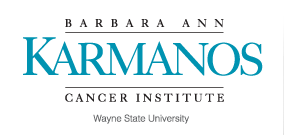
Wayne State University/Karmanos Cancer Institute Karmanos is based in southeast Michigan, in midtown Detroit, and...
Click here to add this to my saved trials
Cook Children's Medical Center Cook Children's Health Care System is a not-for-profit, nationally recognized pediatric...
Click here to add this to my saved trials
Hackensack University Medical Center Hackensack University Medical Center, part of the Hackensack University Health Network,...
Click here to add this to my saved trials
Riley Hospital for Children Riley Hospital for Children at IU Health is a place of...
Click here to add this to my saved trials
Click here to add this to my saved trials
Click here to add this to my saved trials
Click here to add this to my saved trials
600 Highland Ave
Madison, Wisconsin 53792
Madison, Wisconsin 53792
(608) 263-6400

University of Wisconsin Hospital and Clinics UW Health strives to meet the health needs of...
Click here to add this to my saved trials
Click here to add this to my saved trials
Click here to add this to my saved trials
940 NE 13th St
Oklahoma City, Oklahoma 73190
Oklahoma City, Oklahoma 73190
(405) 271-6458

University of Oklahoma Health Sciences Center The OU Health Sciences Center is composed of seven...
Click here to add this to my saved trials
Univ of Nebraska Med Ctr A vital enterprise in the nation’s heartland, the University of...
Click here to add this to my saved trials
Click here to add this to my saved trials
Phoenix Children's Hospital Phoenix Children's Hospital has provided hope, healing, and the best healthcare for...
Click here to add this to my saved trials
Click here to add this to my saved trials
Click here to add this to my saved trials
Click here to add this to my saved trials
Click here to add this to my saved trials
Click here to add this to my saved trials
Seattle Children's Hospital Seattle Children’s Hospital specializes in meeting the unique physical, emotional and developmental...
Click here to add this to my saved trials
